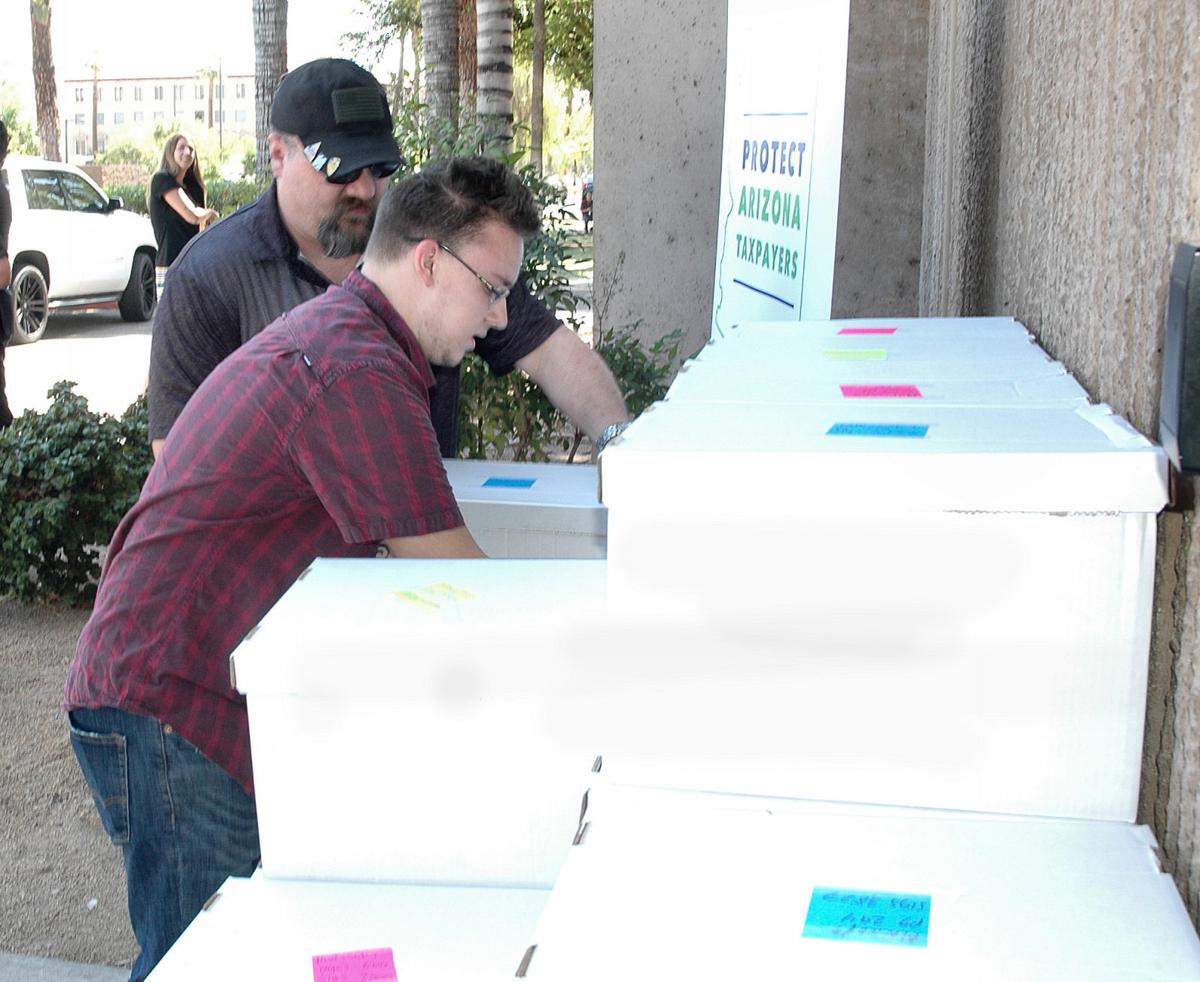PHOENIX — Whether voters get to decide if they want to outlaw “dark money” could depend on whether a judge voids a law that throws a hurdle in the path of initiative organizers.
Attorney Kory Langhofer, who represents groups that now do not disclose the source of their funds, contends that the Outlaw Dirty Money committee does not have sufficient valid signatures to put the issue on the November ballot. At a hearing Monday, Langhofer told Maricopa County Superior Court Judge Teresa Sanders there are flaws with many signatures.
But much of Langhofer’s case rests on the fact that he issued more than a dozen subpoenas to people who circulated petitions, whom he contends were not legally qualified to do so. These include circulators he contends have felony convictions or did not provide a proper address.
None of those subpoenaed showed up in court Monday.
Langhofer said a state law requires the judge to automatically disqualify all signatures each of those people gathered. If she agrees, that could leave the initiative with fewer than the 225,963 valid signatures needed to be placed on the ballot.
But attorney Kim Demarchi, who represents initiative organizers, is urging Sanders to reject that contention. She contends the automatic-disqualification law, approved in 2014 by the Republican-controlled Legislature, is an unconstitutional infringement on the right of judges to decide whether a person’s failing to show up means they weren’t obeying the laws governing petition circulators.
For example, Arizona law spells out that a convicted felon is ineligible to circulate petitions unless that person’s civil rights have been restored. In Arizona, restoration requires a specific court action. But Demarchi pointed out that some of the circulators come from states where an individual’s civil rights are restored once they complete their sentence.
Demarchi suggested that the automatic-disqualification provision was approved solely to make it more difficult — unconstitutionally, she says — for citizens to propose laws through initiatives.
“It’s hard to deny that it’s significantly easier to run to be a member of the Legislature and to file a lawsuit to kick off someone who’s trying to challenge you for that office, or to file a lawsuit to kick off an initiative, than to keep an initiative on the ballot,” she said.
Langhofer, however, defended both the legality and the propriety of the automatic-disqualification provision.
“If you’re going to put something on the ballot, you’ve got to keep your circulators around to answer questions about whether they’re felons, about whether they fill out the registration paperwork properly,” he said. “You can’t just send them to Alaska so they can avoid the lawsuit.”
Langhofer said he doesn’t see a legal problem with disqualifying the petitions of those who did not show. Circulators signed forms saying that any subpoenas could be served on them at specific addresses, he said.
The question of whether it’s legal to eliminate the signatures collected by people who are subpoenaed but do not show up also could affect another trial, which started Monday. That one involves a bid by the parent company of Arizona Public Service to block a vote on a new renewable energy mandate.
In that case, foes of the initiative have subpoenaed more than 1,600 circulators in their attempt to disqualify any signatures they gathered.
The lawsuit against the “dark money” measure was brought by officials from the Free Enterprise Club, American for Prosperity and Concerned Veterans for America.
All three groups have put money into campaigns in Arizona but refused to disclose who is providing the cash, citing state law that allows them to use their status under the Internal Revenue Code as “social welfare” organizations to shield the names of donors.
This initiative would put what amounts to a “right-to-know” provision in the Arizona Constitution, mandating public disclosure of the names of any individual, association or corporation that spends at least $2,500 in any two-year cycle. Those failing to comply could be fined equal to triple the disclosed amount.
The renewable-energy measure, being challenged in front of Judge Daniel Kiley, would constitutionally mandate that most utilities obtain half of their energy from renewable sources by 2030. That would override existing Arizona Corporation Commission rules that say utilities need to provide 15 percent of electricity from renewables by 2025.
APS is financing that fight, with utility officials and campaign spokesmen saying it would lead to higher energy costs.





